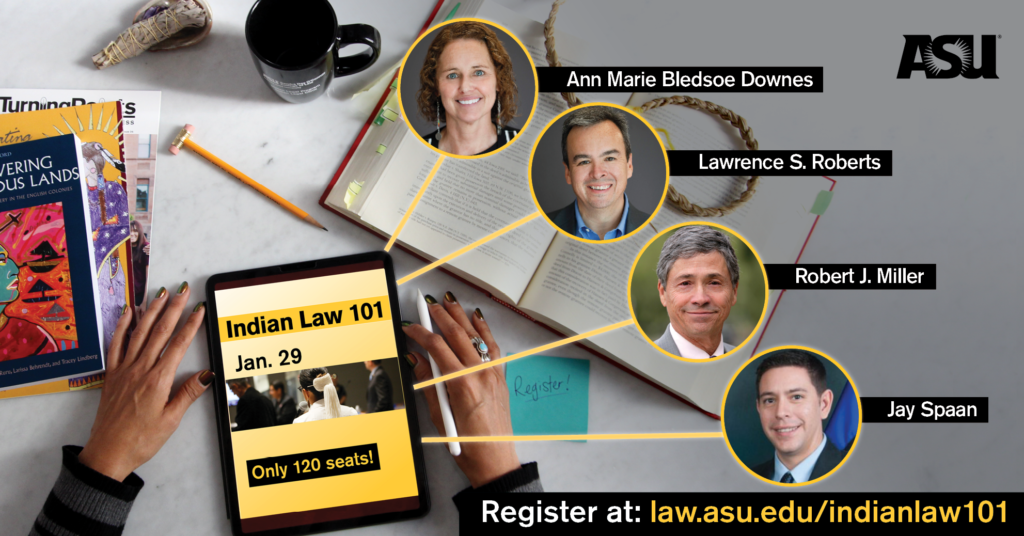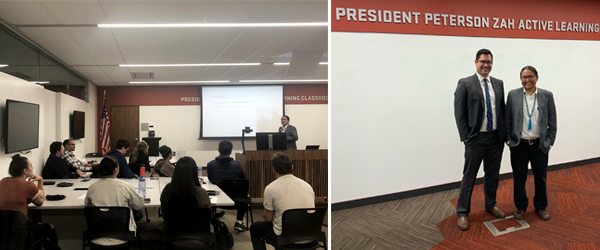
Wednesday, January 29
9 a.m. – 4 p.m.
Ak-Chin Indian Community Conference Center, Room 544
Beus Center for Law and Society, Phoenix, AZ
The new Indian Gaming and Tribal Self-Governance Programs will host a conference on the fundamentals of Indian Law.
Topics covered:
- History of Federal Indian Law and Policy
- Overview of Civil and Criminal Jurisdiction
- Fundamentals of Tribal Self-Governance
- Fundamentals of Indian Gaming
Presenters:
- Professor Robert J. Miller
- Professor Ann Marie Bledsoe Downes
- Professor Lawrence S. Roberts
- Executive Director Jay Spaan, Self-Governance Communication & Education (SGCE) Tribal Consortium
Register now and receive complimentary conference materials.
Standard Registration rate of $250 ends 1/23
Register at: law.asu.edu/indianlaw101
Share on facebook
Share on google
Share on twitter
Share on linkedin

